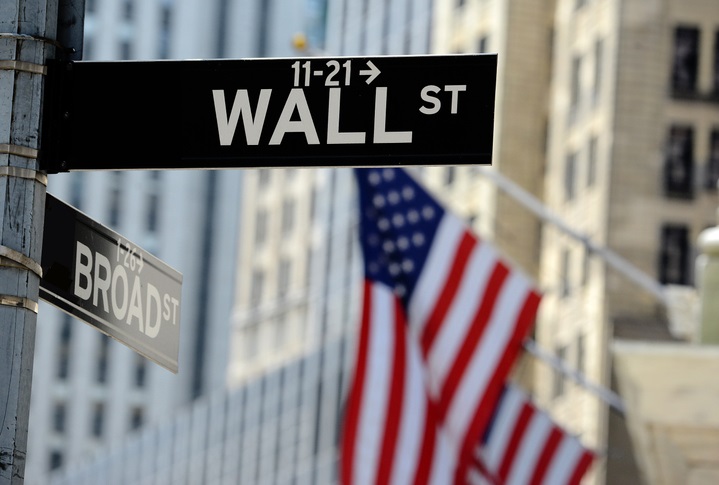US results reporting season: reaction to bank and tech sector numbers
Our head of markets reports on indices across the pond and how the big stocks have fared.
24th July 2020 13:15
by Richard Hunter from interactive investor
Our head of markets reports on indices across the pond and how the big stocks have fared.

The half-year reporting season has begun in earnest, and, as yet, has not unsettled markets, where the main concerns remain deteriorating relations between the US and China, and ongoing worries about further spikes of Covid-19.
The main US indices have continued their differing performances – the Dow Jones index is down 5% in the year to date, the S&P 500 index has just moved into positive territory, up 1.4% and the Nasdaq technology index continues to power ahead, up 19% so far this year.
Three stocks worthy of mention who have already reported are JP Morgan (NYSE:JPM), Citigroup (NYSE:C) and Netflix (NASDAQ:NFLX).
JP Morgan, of course, is a highly diverse US banking giant. Its operations cover both traditional consumer and corporate banking, along with investment banking and asset management. With North America generating around three-quarters of its revenue, the bank is seen as offering a broader health check on the wider US economy.
The International Monetary Fund (IMF) previously forecast the worst recession since the Great Depression, but JP Morgan has moved quickly to cover what Jamie Dimon expects to be a severe recession.
For investors, given the fallout and subsequent rebuilding of balance sheets from the financial crisis, US banks have generally come into this crisis in good shape – including JP Morgan. Despite recent health issues, the long serving experience of its chief executive also offers reassurance, while a dividend continues to be paid. But caution has seen the share buyback programme suspended, while an eventual reduction in US government economic aid and stimulus could see bad debt provisions rise further. The shares are down 29% in the year to date.
- Stockwatch: have Microsoft shares finally peaked?
- ii view: a strong quarter for Microsoft, but not stellar
- Most-popular US stocks: backing the tech rally
A rather more global bank, with less than half of its revenue generated in the US and more than a third coming from Asia and Latin America, is Citigroup.
As with JP Morgan, bond and equity trading at its Institutional Clients division helped to partially compensate for increased bad debt provisions in its Banking division. Institutional client sales rose by 21% year-over-year while global banking revenues fell by 10%.
Net credit losses rose by 12% to $2.2 billion, but volatile Covid-hit bond trading generated a near-70% increase in fixed income revenues to $5.6 billion. The period again witnessed the US Federal Reserve buying more bonds.
A dividend continues to be paid even though the share buyback programme has been suspended. The concerns overhanging the banks, in particular the possible rise of bad debts, means that Citi may not be out of the woods yet. Its shares are down 35% so far this year.
In a relatively short time, Netflix has become a household name. The ability to stream and watch drama series or movies at a time convenient to the consumer holds great appeal. The company's expansion overseas has been rapid. Revenues in 2019 were split almost evenly between North America and overseas.
Customer growth or paid net global additions of 10.1 million and 15.77 million in the second and first quarters respectively, helped by population lockdowns under the coronavirus, is expected to slow to 2.5 million in the current July to September third quarter. Analysts had pencilled in a figure nearer to 5 million.
- Two gold stocks as an alternative to US tech sector
- Polar Capital interview: the best tech company I’ve ever owned
- Want to buy and sell international shares? It’s easy to do. Here’s how
- Take control of your retirement planning with our award-winning, low-cost Self-Invested Personal Pension (SIPP)
These latest results have again seen Netflix as a beneficiary of Covid-19. But whether a pull through of customers from the second half has been caused by the pandemic, as management suspects, only time will tell.
Competition also continues to grow. Along with existing services from Amazon and Hulu, The Walt Disney (NYSE:DIS), Apple (NASDAQ:AAPL) and even the BBC and ITV (LSE:ITV) in the UK have all recently launched their own streaming services.
For investors, a one-year prospective price/earnings (PE) ratio of around 80 against a three-year average of over 120, suggests the removal of some early investor enthusiasm. Although not directly comparable, Amazon, another considered winner in the Covid environment for both its online retail and Prime stream services, sits on a one-year prospective PE ratio of over 140.
However, in terms of sentiment, and with a view to long-term performance, Netflix has appeal at the right price.
Netflix shares are up 51% in the year to date.
These articles are provided for information purposes only. Occasionally, an opinion about whether to buy or sell a specific investment may be provided by third parties. The content is not intended to be a personal recommendation to buy or sell any financial instrument or product, or to adopt any investment strategy as it is not provided based on an assessment of your investing knowledge and experience, your financial situation or your investment objectives. The value of your investments, and the income derived from them, may go down as well as up. You may not get back all the money that you invest. The investments referred to in this article may not be suitable for all investors, and if in doubt, an investor should seek advice from a qualified investment adviser.
Full performance can be found on the company or index summary page on the interactive investor website. Simply click on the company's or index name highlighted in the article.